In my three decades of public ministry, never have I seen more controversy in the Church than over the subject of prophecy.
Confronting the subject of prophecy today is rather like looking at wreckage after a shipwreck. — Archbishop Rino Fisichella, “Prophecy” in Dictionary of Fundamental Theology, p. 788
Not that prophetic revelations in and of themselves are really all that controversial — Chapter 24 of Matthew or the Book of Revelation, for instance, carry enough drama and “doom and gloom” for every generation to debate.
No, it seems that it’s the idea that God would speak through chosen souls that has always repulsed so-called “intellectuals” throughout salvation history. Such folks usually sit in the shadows until some “controversy” or difficult question appears, and when it is advantageous to their reputation, they cast their stones. So it was with Jesus. It wasn’t until He was in chains that the high priests spat upon him. It is easy to throw stones when you’ve got a gullible crowd of naysayers beside you and some seer lying in the dirt of biased public scrutiny, if not persecution. But let’s just call that what it often is: cowardice and defamation.
In reality, it actually takes a lot of courage and diligence to obey the words of St. Paul:
Do not despise the words of prophets, but test everything; hold fast to what is good… (1 Thessalonians 5:20-21)
It also requires a certain vulnerability and even strength to openly discern prophecy in our ultra-rationalist Catholic culture. More often than not, to even mention what some alleged seer said will draw silent scorn — or produce the common but false dismissal that “one does not have to believe in private revelation” (see Prophecy in Perspective).
I certainly cannot blame bishops for their reticence when it comes to claims of the supernatural; I am even sympathetic. 2000 years of experience shows us how frail the human mind and perception can be and how easily one can be deceived or deluded, even if well-intentioned.
On the other hand, we have two millennia of experience and Tradition precisely to help us discern and sift through what may be genuine prophetic revelations. In fact, history has proven time and again that in not heeding authentic prophecy, the Church and the world have fallen into great suffering — which is our current situation (see Why the World Remains in Pain and When They Listened.)
Hence, the a priori position of many clergy to simply presume falsehood when it comes to prophetic claims is foreign to biblical discernment. The attitude of the Church, at least in her official teaching, is certainly not one of fear and the kind of condescension we see in our days where anyone who takes prophecy seriously is frequently called an “apparition chaser”, “emotionally unstable”, “spiritually deficient” or whatever other stone they heave. It bears repeating:
One may refuse assent to “private revelation” without direct injury to Catholic Faith, as long as he does so, “modestly, not without reason, and without contempt.” —POPE BENEDICT XIV, Heroic Virtue, p. 397
The authentic Catholic spirit is to remain open to the prophetic when there is good reason to.
It is not [private revelations’] role to improve or complete Christ’s definitive Revelation, but to help live more fully by it in a certain period of history. Guided by the Magisterium of the Church, the sensus fidelium knows how to discern and welcome in these revelations whatever constitutes an authentic call of Christ or his saints to the Church. —Catechism of the Catholic Church, n. 67
Gee, there’s a lot of faith in us in that statement — but not a lot of evidence to that effect. What we see all too often, particularly among career apologists, theologians, and webcasters, is a lack of discernment and willingness to “welcome” these revelations, even when there is solid reason to — which is a far cry from the exhortation of the popes:
We urge you to listen with simplicity of heart and sincerity of mind to the salutary warnings of the Mother of God… —POPE ST. JOHN XXIII, Papal Radio Message, February 18th, 1959; L’Osservatore Romano
In every age the Church has received the charism of prophecy, which must be scrutinized but not scorned. —Cardinal Ratzinger (BENEDICT XVI), Message of Fatima, Theological Commentary, vatican.va
He to whom that private revelation is proposed and announced, ought to believe and obey the command or message of God, if it be proposed to him on sufficient evidence… For God speaks to him, at least by means of another, and therefore requires him to believe; hence it is, that he is bound to believe God, Who requires him to do so. —POPE BENEDICT XIV, Heroic Virtue, p. 394
And thus…
Those who have charge over the Church should judge the genuineness and proper use of these gifts through their office, not indeed to extinguish the Spirit, but to test all things and hold fast to what is good. —Second Vatican Council, Lumen Gentium, n. 12
Prophecy. It’s Catholic, dude. The rejection of the charismatic gifts is not a fruit of the Holy Spirit.
Countdown to the Kingdom exists to provide credible prophecy precisely so that our shepherds may help the faithful to discern what constitutes authentic prophecy, and what does not. Take what is good, leave the rest.
For my part, I have been grateful to read words from Our Lord or Our Lady that have confirmed my own internal meditation, have called me to deeper conversion, or encouraged me to stay on the current path — which is the path of daily prayer, the Sacraments, and the truths safeguarded in Sacred Tradition. As for the more dramatic predictions? I simply file them away in the “wait and see” category without losing any sleep over them.
The fruit of the Countdown to the Kingdom “experiment” is what is most important. On a daily basis, we receive letters from people, even whole parishes, who have gone through serious conversions because of the messages and reflections that have been posted here. There have been many, many St. Paul-like conversions, and that doesn’t happen every day.
That doesn’t mean that the ongoing process of discerning prophecy won’t be messy. It doesn’t mean that we won’t continue to discover the human frailty and weakness of not only seers, but hopefully, ourselves.
What it does mean is that Countdown will continue to serve this mission to allow the faithful to “discern and welcome in these revelations whatever constitutes an authentic call of Christ or his saints to the Church.” For those who choose to continue throwing stones our way… you can collect them at the back door.
—Mark Mallett is a former journalist with CTV Edmonton, the author of The Final Confrontation and The Now Word, Producer of Wait a Minute, and a co-founder of Countdown to the Kingdom



 Alicja Lenczewska
Alicja Lenczewska

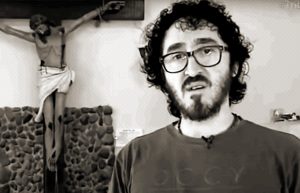

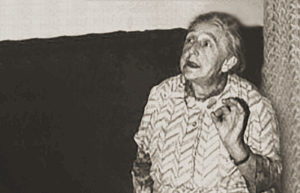 Elizabeth Kindelmann
Elizabeth Kindelmann Through what became The Spiritual Diary, Jesus and Mary taught Elizabeth, and they continue to instruct the faithful in the divine art of suffering for the salvation of souls. Tasks are assigned for each day of the week, which involve prayer, fasting, and night vigils, with beautiful promises attached to them, laced with special graces for priests and the souls in purgatory. In their messages, Jesus and Mary say that The Flame of Love of the Immaculate Heart of Mary is the greatest grace given to mankind since the Incarnation. And in the not-so-distant future, her flame will engulf the entire world.
Through what became The Spiritual Diary, Jesus and Mary taught Elizabeth, and they continue to instruct the faithful in the divine art of suffering for the salvation of souls. Tasks are assigned for each day of the week, which involve prayer, fasting, and night vigils, with beautiful promises attached to them, laced with special graces for priests and the souls in purgatory. In their messages, Jesus and Mary say that The Flame of Love of the Immaculate Heart of Mary is the greatest grace given to mankind since the Incarnation. And in the not-so-distant future, her flame will engulf the entire world.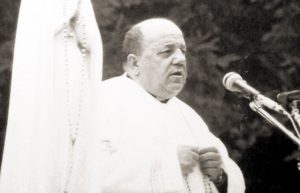 Father Stefano Gobbi
Father Stefano Gobbi Why Gisella Cardia?
Why Gisella Cardia? Thirdly, the messages have frequently been accompanied by visible phenomena, photographic evidence found in In Cammino con Maria, which cannot be the fruit of subjective imagination, notably the presence of the stigmata on Giselle’s body and and the appearance of crosses or religious texts in blood on Gisella’s arms. See the pictures taken from her apparition website
Thirdly, the messages have frequently been accompanied by visible phenomena, photographic evidence found in In Cammino con Maria, which cannot be the fruit of subjective imagination, notably the presence of the stigmata on Giselle’s body and and the appearance of crosses or religious texts in blood on Gisella’s arms. See the pictures taken from her apparition website 
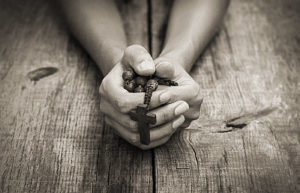 Jennifer
Jennifer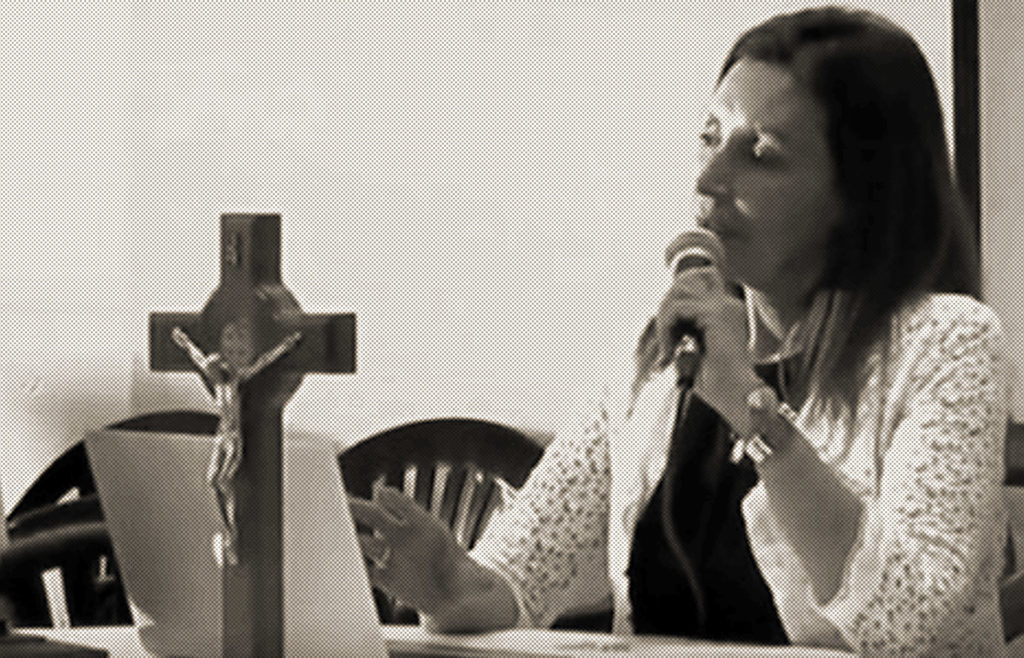
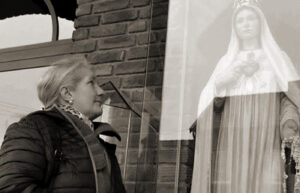 Why Manuela Strack?
Why Manuela Strack?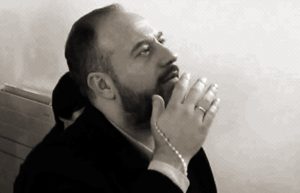

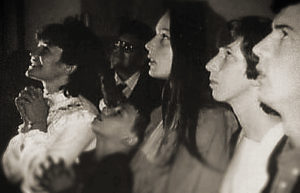 Why the Visionaries of Our Lady of Medjugorje?
Why the Visionaries of Our Lady of Medjugorje?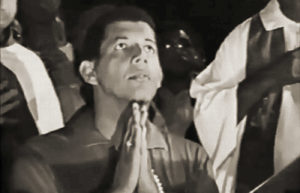 Why Pedro Regis?
Why Pedro Regis? Why the Servant of God Luisa Piccarreta?
Why the Servant of God Luisa Piccarreta? of the saints. It wasn’t until she became a “Daughter of Mary” that the nightmares finally ceased at the age of eleven. In the following year, Jesus began to speak interiorly to her especially after receiving Holy Communion. When she was thirteen, He appeared to her in a vision that she witnessed from the balcony of her home. There, in the street below, she saw a crowd and armed soldiers leading three prisoners; she recognized Jesus as one of them. When He arrived beneath her balcony, He raised his head and cried out: “Soul, help Me!” Deeply moved, Luisa offered herself from that day on as a victim soul in expiation for the sins of mankind.
of the saints. It wasn’t until she became a “Daughter of Mary” that the nightmares finally ceased at the age of eleven. In the following year, Jesus began to speak interiorly to her especially after receiving Holy Communion. When she was thirteen, He appeared to her in a vision that she witnessed from the balcony of her home. There, in the street below, she saw a crowd and armed soldiers leading three prisoners; she recognized Jesus as one of them. When He arrived beneath her balcony, He raised his head and cried out: “Soul, help Me!” Deeply moved, Luisa offered herself from that day on as a victim soul in expiation for the sins of mankind. immobile, rigid-like state that appeared almost as if she were dead. It was only when a priest made the sign of the Cross over her body that Luisa regained her faculties. This remarkable mystical state persisted until her death in 1947—followed by a funeral that was no little affair. During that period in her life, she suffered no physical illness (until she succumbed to pneumonia at the end) and she never experienced bedsores, despite being confined to her little bed for sixty-four years.
immobile, rigid-like state that appeared almost as if she were dead. It was only when a priest made the sign of the Cross over her body that Luisa regained her faculties. This remarkable mystical state persisted until her death in 1947—followed by a funeral that was no little affair. During that period in her life, she suffered no physical illness (until she succumbed to pneumonia at the end) and she never experienced bedsores, despite being confined to her little bed for sixty-four years.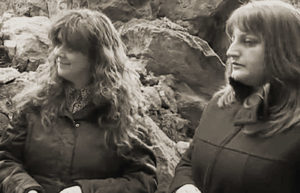 Why Simona and Angela?
Why Simona and Angela?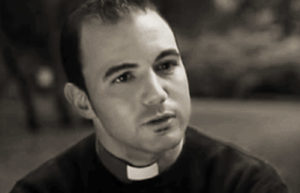
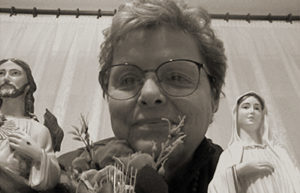 Valeria Copponi
Valeria Copponi